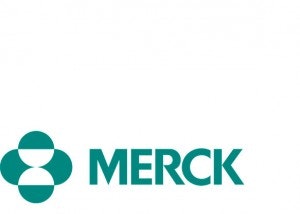Tomorrow, Merck & Co., Inc. (NYSE:MRK) will release its latest quarterly results. The key to making smart investment decisions on stocks reporting earnings is to anticipate how they’ll do before they announce results, leaving you fully prepared to respond quickly to whatever surprises inevitably arise. That way, you’ll be less likely to have an uninformed, knee-jerk reaction that turns out to be exactly the wrong move.

As the smaller of the pure pharmaceutical plays in the Dow Jones Industrial Average (INDEXDJX:.DJI), Merck faces many of the same patent-cliff issues as its peers. Yet between its substantial dividend and a solid pipeline of potentially lucrative treatments, Merck & Co., Inc. (NYSE:MRK) has put itself in position to restore the lost revenue of its expired blockbusters. Let’s take an early look at what’s been happening with Merck & Co., Inc. (NYSE:MRK) over the past quarter and what we’re likely to see in its quarterly report.
Stats on Merck
| Analyst EPS Estimate | $0.79 |
| Change From Year-Ago EPS | (20%) |
| Revenue Estimate | $11.09 billion |
| Change From Year-Ago Revenue | (5.4%) |
| Earnings Beats in Past 4 Quarters | 4 |
Source: Yahoo! Finance.
Can Merck get itself back to full strength this quarter?
In recent months, analysts have reined in their earnings estimates on Merck substantially, with an especially harsh $0.11 per-share cut for the first quarter. Yet they’ve only cut a nickel per share off their full-year estimates, suggesting that they think Merck & Co., Inc. (NYSE:MRK) can earn some of what it missed in the first quarter later in the year. The stock has certainly reflected more optimism than analysts, gaining nearly 13% since late January.
Merck continues to fight against its patent cliff, with asthma treatment Singulair having gone off patent last August. It’s also dealing with potential generic competition against migraine drug Maxalt and its Propecia hair-loss drug.
But Merck & Co., Inc. (NYSE:MRK) has plenty of prospects in its pipeline. Biologic psoriasis treatment MK-3222 is about to start Phase 3 trials and could potentially unseat multibillion-dollar blockbusters like Remicade, Enbrel, and Humira if it’s eventually approved. Merck also recently announced a partnership with Bristol Myers Squibb Co. (NYSE:BMY) Squibb to test two of their respective drugs together as a potential hepatitis-C oral cocktail treatment, serving as Merck’s entry into the crowded hep-C market.
Perhaps most interesting is the recent news that Merck will work alongside rival Pfizer Inc. (NYSE:PFE) on Pfizer’s ertugliflozin treatment for diabetes. Considering Merck’s established expertise in diabetes drugs, Pfizer Inc. (NYSE:PFE) apparently decided it was worth teaming up with its competitor to take advantage of possible combinations with Merck’s existing Januvia treatment. That could also help Merck & Co., Inc. (NYSE:MRK) fight off new competition from Johnson & Johnson (NYSE:JNJ) , whose recently approved Invokana beat Januvia in head-to-head Phase 3 trial results.
